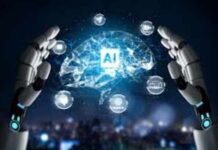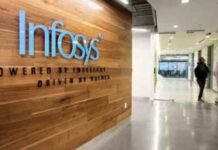
In the swiftly transforming landscape of HR, the integration of Artificial Intelligence (AI) is revolutionizing how organizations manage their ‘Talent.’
For HR professionals, the test lies not in choosing between technology and human touch but in strategically leveraging AI to enhance the intrinsic human element that drives organizational culture and success.
This article delves into the strategic intersection of Artificial Intelligence and Emotional Intelligence in HR, providing insights and strategies to harness the best of both worlds.
AI’s rise in HR is marked by its ability to process vast amounts of data swiftly and accurately, making HR processes more efficient and data-driven. From talent acquisition to employee engagement, Artificial Intelligence offers tools that streamline operations, provide predictive analytics, and foster a more responsive HR environment.
However, as AI’s capabilities expand, so do concerns about its impact on the human aspects of HR. The risk of moderated personal connections and concentrated empathy necessitates a thoughtful approach to AI integration, ensuring that technology enhances rather than erodes the human experience.
Here are some critical steps for a strategic Integration of AI and EI in HR
Augmenting HR Capabilities
AI can augment HR professionals’ capabilities by automating repetitive administrative tasks, freeing HR to focus on strategic and interpersonal objectives requiring emotional intelligence. This strategic reallocation enables HR to become more proactive in talent management and employee engagement.
Developing Emotionally Intelligent AI Tool
Investing in AI tools that incorporate elements of emotional intelligence is vital. AI-powered chatbots, for example, can be programmed to respond empathetically, acknowledge employee concerns, and escalate complex issues to human HR professionals. This ensures that AI interactions are supportive and aligned with human values.
Leveraging Data-Driven Insights
AI can provide data-driven insights that inform human decision-making, reducing biases and enhancing objectivity. By considering contextual factors and individual circumstances, AI-driven analytics can support HR in making rational, more informed decisions that resonate emotionally with employees.
Facilitating Progressive Work Environments
AI can help identify and mitigate unconscious biases in hiring, promotions, and performance evaluations, promoting a more inclusive workplace. Emotional intelligence by HR coupled with objective-driven data can prove essential in understanding diverse perspectives and fostering an environment where all employees feel inclusive.
Personalizing Employee Development
AI-driven learning management systems can recommend personalized training and development programs based on individual career goals and performance data. Coupled with EI-driven coaching and mentorship by HR, this approach ensures that employees receive the support and guidance they need to thrive.
Continuous Feedback and Improvement
Encouraging employees to share their experiences with Artificial Intelligence tools enables HR to make real-time process improvements. This feedback loop can enhance AI’s empathetic capabilities and ensure alignment with the emotional needs of the workforce, fostering a culture of continuous improvement and responsiveness.
Strengthening Internal Communication
AI can analyze communication patterns and suggest improvements for more effective collaboration and information sharing. HR professionals can use these insights to develop communication strategies that consider emotional dynamics, ensuring messages are delivered and received in a manner that fosters trust and engagement.
HR Transformation with AI
In one of my HR transformation projects, we used AI to analyze employee feedback and predict engagement levels. The HR team crafted and implemented action plans as we contextualized the data within the cultural and emotional fabric of the organization, ensuring a holistic approach to employee engagement.
In another initiative, we utilized AI to identify employees at risk of burnout through email and calendar data analysis to ensure that AI red flags were monitored by personalized support from trained HR professionals. This blend of technological precision and human empathy helped us proactively address employee well-being.
Drawing Conclusions
The future of HR lies in the strategic integration of AI and EI, creating an associated relationship that enhances both efficiency and empathy. While AI offers unprecedented capabilities for data analysis and process automation, the EI of HR professionals truly drives a supportive and engaging workplace culture.
By embracing a strategic approach to AI and EI integration, organizations can foster a harmonious HR ecosystem that leverages both strengths, ultimately enhancing employee satisfaction and organizational success.
This strategic synergy optimizes HR operations and positions organizations to thrive in an increasingly complex and competitive landscape. The key to success lies in maintaining an optimized balance, ensuring that technology amplifies the human element rather than overshadowing it.
Note: We are also on WhatsApp, LinkedIn, Google News, and YouTube, to get the latest news updates, Subscribe to our Channels. WhatsApp– Click Here, Google News– Click Here, YouTube – Click Here, and LinkedIn– Click Here.








